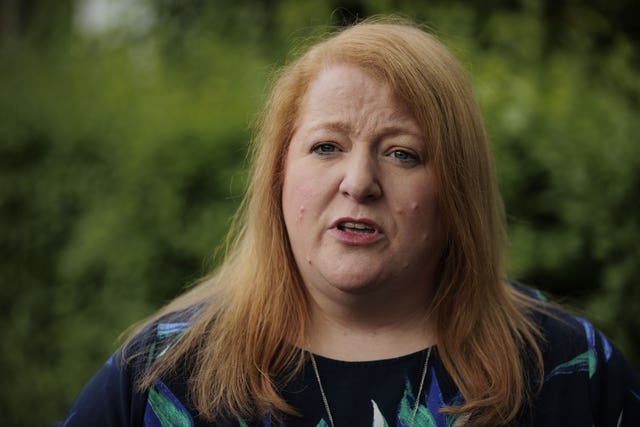Northern Ireland’s Justice Minister Naomi Long has expressed her concern that not all of catfish Alexander McCartney’s victims may be identified.
The online predator, who drove one of his victims in the US to take her own life, was jailed for at least 20 years in court in Belfast on Friday.
McCartney, 26, who admitted 185 charges involving 70 children, posed as a teenage girl to befriend young females on Snapchat before blackmailing them, and lured in victims across the world.

While he was jailed for the charges relating to 70 victims, it is believed that the number of children he abused is about 3,500.
Ms Long has urged anyone who was abused by McCartney or anyone else to come forward.
“The sad part of all of this is that some of those victims may never be able to be identified and I think that is really distressing for the (police) officers as it is for the rest of us, but at least the abuser has been identified and will serve a considerable length of time in prison for what he has done,” she told BBC Radio Ulster’s Good Morning Ulster programme.
“There were pretty exhaustive inquiries that were undertaken at the time during the investigation to try to identify who those children were and for some that was possible right across the globe. For others, they weren’t traceable, and I don’t think it will be easy although there may be some who upon reading about the sentencing in this case may come forward.
“I would certainly encourage anyone who has been abused in this way by McCartney or by others to come forward to their local police to tell what is happening. Many of these children were terrified of what would happen to them if they were to say what they had done because they felt guilty about their behaviours.
“Nobody should ever feel frightened having been put in this situation. They are the victim, and if somebody is being black mailed in this way, I would really encourage them to reach out for help, speak to someone, you will be treated as a victim not as a criminal, and you will get the support that you need.”

“Those officers spent hours watching material that no human being should ever have to see in order to ensure this case could be brought to court,” she said.
“It was a complicated case, there were novel parts of law being tested in terms of online behaviour but I think it is a credit to them that it got to this.”






